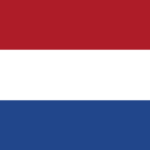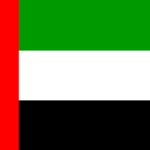PESTEL analysis of Russia (Russia country profile)
This is a detailed PESTEL analysis of Russia. It attempts to examine some of the political, economic, social, technological, environmental, and legal factors affecting Russia today. Russia is a superpower and arch-rival to the United States in global politics. It is officially known as the Russian Federation.
Political factors affecting Russia
The dissolution of the Soviet Union eventually resulted in 15 independent sates i.e. Russia, Ukraine, Belarus, Kazakhstan, Uzbekistan, Armenia, Azerbaijan, Georgia, Kyrgyzstan, Moldova, Tajikistan, Turkmenistan, Estonia, Latvia, and Lithuania with Russia continuing to be the official successor state of the Soviet Union. The Russian Federation is a semi-presidential republic with the President being the head of state, and the Prime Minister the head of government.
Russia is a superpower and is one of five permanent members of the UN Security Council. It is also a member of a number of influential, prestigious, and international organisations and unions such as World Trade Organization, BRICS, EU Customs Union, Eurasian Economic Union, Shanghai Cooperation Organisation, Asian Pacific Economic Cooperation, Black Sea Economic Cooperation Organization, the Council of Europe, World Tourism Organization, and Commonwealth of Independent States to name but a few (Russian Investment Agency, 2021).
Russia is the largest country on earth and plays an enormous role in global politics. While it has bilateral relations with a number of powerful countries in the world, the cooperation between China and Russia is seen as one of the most significant ones as both giants work to form ever-deeper bonds across a wide range of areas. It is worth mentioning that both Russia and the United States are in constant competition with each other to be crowned as the most powerful country in the world. It is also worth mentioning that Russia’s annexation of Crimea has drawn a wide spread criticism from different corners of the world.
Economic factors affecting Russia
Russia is one of the top 15 largest economies in the world by nominal GDP. Its economy grew by 2.3% in 2018 which was higher than the forecast of IMF’s 1.7% and its own economy ministry’s forecast of 1.8% (The Japan Times, 2019). Its GDP in 2019 was 1699.90 billion US dollars (Trading Economics, 2021). However, the GDP declined a bit in 2020 due to domestic and global lockdowns.
Russian economy is heavily dependent on oil and gas. It produces around 11 million barrels of oil a day. In fact, oil and gas make up 59% of Russia’s exports. Other top exports of Russia are as follows: iron and steel, cereals, precious metals, machinery including computers, wood, fertilizers, and aluminium (Workman, 2021). The main imports of Russia are machinery, equipment and transport, chemicals, food and agricultural products. China and Germany are two of the top import partners of Russia.
As mentioned above, Russia is a key part of the BRICS (Brazil, Russia, India, China and South Africa) group. It has undertaken a number of initiatives to encourage foreign investment. Recent infrastructure developments have also immensely improved the logistical efficiency of doing business in the country.
Social factors affecting Russia
Though Russia is the largest country on earth, it has, a total population of slightly over 145 million (Worldometer, 2021). The life expectancy for men is 63 years and 75 years for women (BBC, 2019). Orthodox Christianity is the largest religion in Russia, and Islam is the second. Apart from Orthodox Christianity and Islam, Russia also has significant minorities including Pagans, Hindus, Buddhists, Jews, and irreligious people.
It is important to note that the middle class is very swiftly increasing in size in Russia and many Russian consumers are very receptive to foreign brands, particularly in the field of luxury goods, food and drink. According to some sources, there is a real demand for British brands among Russian consumers. Affordable Chinese products have also made a very good name in Russia.
However, it is worth mentioning that Russia faces some social challenges that need immediate addressing. For instance, the country’s population is decreasing by around 700 people a day. The decline is caused particularly due to an ageing population, falling rates of immigration, a lack of enforcement of health and food regulations, and Western economic sanctions.
Social inequality is another problem that should be taken into account as well. Russia has more than 70 billionaires; however, many people in the country live in poverty. The poverty rate in Russia is over 13%; however, the country set a target in 2018 to reduce the poverty in half by 2024 (World Bank, 2021).
Technological factors affecting Russia
Technological environment is the next element to discuss in the PESTEL analysis of Russia. Russia is one of the most technologically advanced countries in the world. It has a remarkable history in the fields of science, IT, and space technology. Indeed, ICT is one of the major drivers of economic development in Russia.
The e-commerce industry is rapidly growing and offering both local and international retailers some brilliant prospects. Interestingly, the Russian customers are keen about what UK retailers and brands offer. As long as search engines are concerned, Yandex (a local online search engine) is the leader with over 60% market share (Berzgal, 2021). While cash-on-delivery is still the most preferred method of payment, online payments are becoming more and more popular day by day.
Environmental factors affecting Russia
Russia is one of the most visited countries in the world. Rich cultural heritage, scenic beauty, ancient cities, museums, and 23 UNESCO World Heritage Sites are some of the factors that attract millions of tourists to Russia every year.
However, Russia faces some grave environmental challenges. For instance, damages caused by landfills, water pollution, air pollution, deforestation, soil erosion, and nuclear waste are to name but a few. According to a survey conducted by Moscow’s Higher School of Economics (HSE), 94% of Russians are concerned about the country’s environmental challenges (The Moscow Times, 2019).
Legal factors affecting Russia
Legal environment is the last element to discuss in the PESTEL analysis of Russia. A detailed discussion on the Russian legal environment is beyond the scope of this article. Therefore, the article touches briefly on some aspects of the employment laws in Russia.
A weekly work schedule in Russia includes 8 hours per day and 40 hours per week. Employees are entitled to 28 days of holiday per year. With Russian employment law being very strict about overtime work, employees are required to make a written request should they intend to work over time. The most common reason for job termination in Russia is redundancy. In the event of dismissal during the probation period, the employers must provide the concerned employees with a three-day notice (Lawyers Russia, 2019).
We hope the article ‘PESTEL analysis of Russia (Russia country profile)’ has been useful. . You may also like reading PESTEL analysis of the UK. Other relevant articles for you are:
Advantages and disadvantages of a private limited company
Sales promotion – techniques of sales promotion
If you liked any of these articles, please feel free to share with others by clicking on the icons provided.
Last update: 24 May 2021
Further reading/references
BBC (2019) Russia country profile, available at: https://www.bbc.co.uk/news/world-europe-17839672 (accessed 05 May 2019)
Berzgal, G. (2021) Russia: Trust is everything, available at: https://www.pitneybowes.com/uk/global-ecommerce/case-studies/cross-border-ecommerce-russia.html (accessed 06 May 2021)
Lawyers Russia (2019) Employment law in Russia, available at: https://www.lawyersrussia.com/employment-law-in-russia (accessed 05 May 2020)
Russian Investment Agency (2021) Russian’s membership in international organisations, available at: https://www.investment-in-russia.com/site/en?view=RUSSIA-AS-A-MEMBER-OF-THE-WTO-AND-OTHER-INTERNATIONAL-UNIONS (accessed 05 May 2019)
The Japan Times (2019) Russian economy outpaced expectations in 2018, rising 2.3%, available at: https://www.japantimes.co.jp/news/2019/02/05/business/economy-business/russian-economy-outpaced-expectations-2018-rising-2-3/#.XNBZhSxrxdg (accessed 05 May 2019)
Trading Economics (2021) Russia GDP, available at: https://tradingeconomics.com/russia/gdp (accessed 24 May 2021)
The Moscow Times (2019) 94% of Russians Are Concerned About the Environment, available at: https://www.themoscowtimes.com/2019/03/25/1-of-russians-happy-with-environment-poll-a64946 (accessed 06 May 2019)
Workman, D. (2021) Russia’s Top 10 Exports, available at: http://www.worldstopexports.com/russias-top-10-exports/ (accessed 06 May 2021)
World Bank (2021) Russia Economic Report, available at: http://www.worldbank.org/en/country/russia/publication/rer (accessed 23 May 2021)
Worldometer (2021) Russia population, available at: https://www.worldometers.info/world-population/russia-population/ (accessed 24 May 2021)
Author: M Rahman
M Rahman writes extensively online and offline with an emphasis on business management, marketing, and tourism. He is a lecturer in Management and Marketing. He holds an MSc in Tourism & Hospitality from the University of Sunderland. Also, graduated from Leeds Metropolitan University with a BA in Business & Management Studies and completed a DTLLS (Diploma in Teaching in the Life-Long Learning Sector) from London South Bank University.


